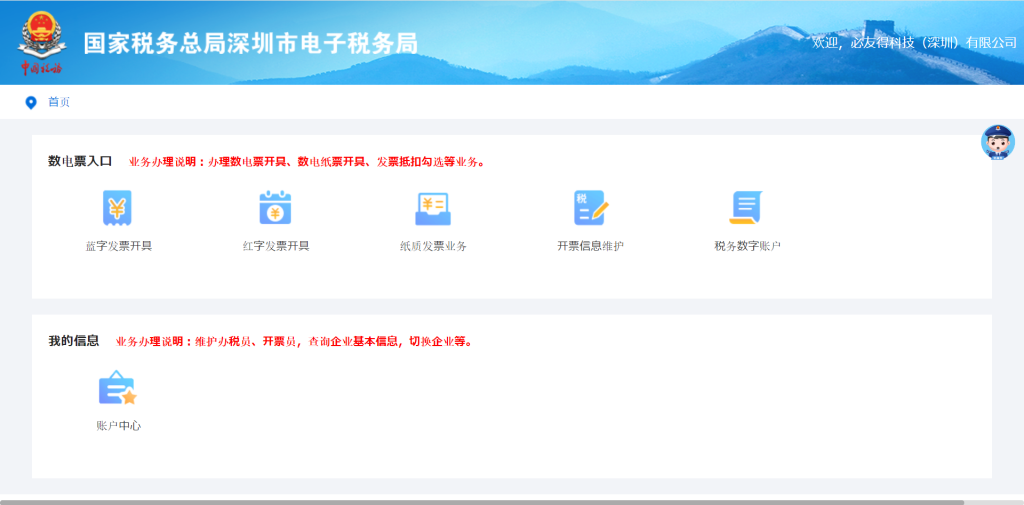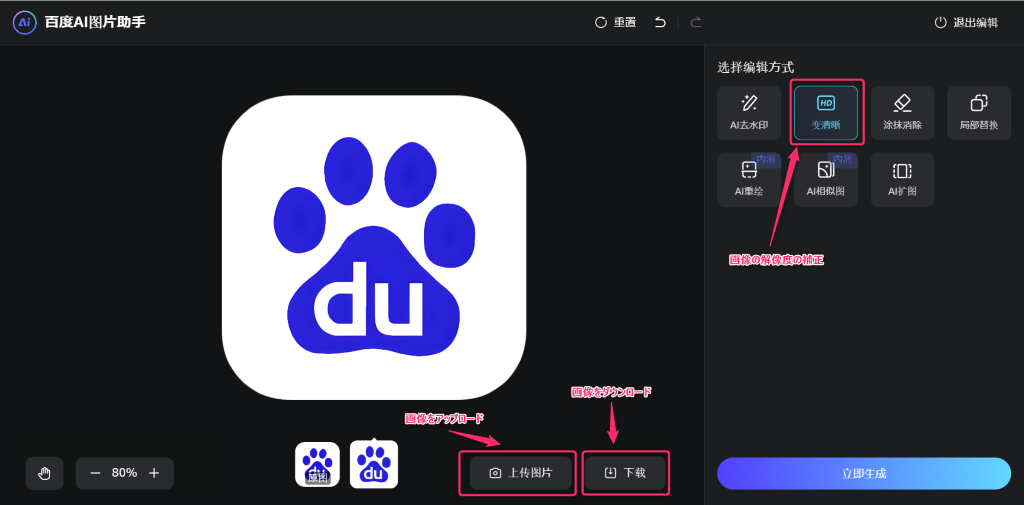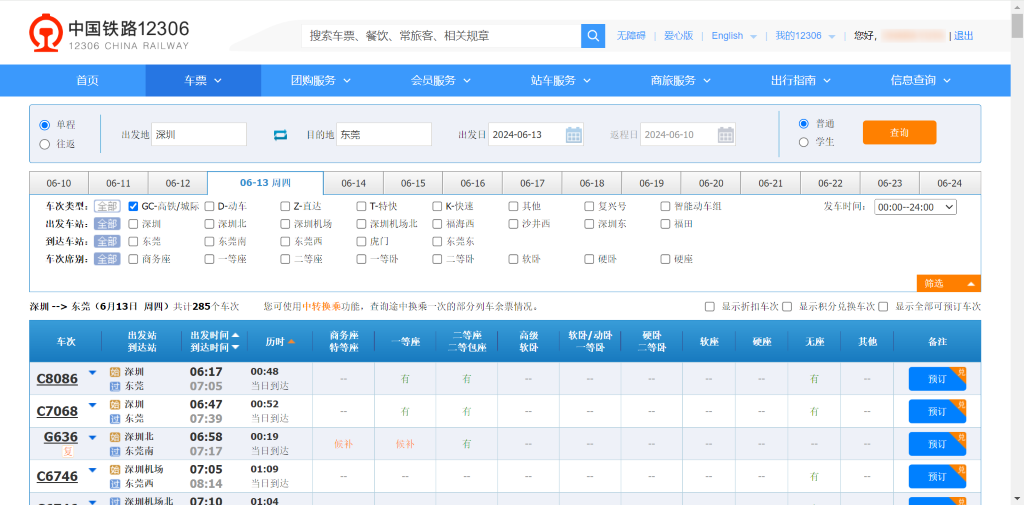[Staffed in China] Introducing apps used for work and life [Shenzhen]
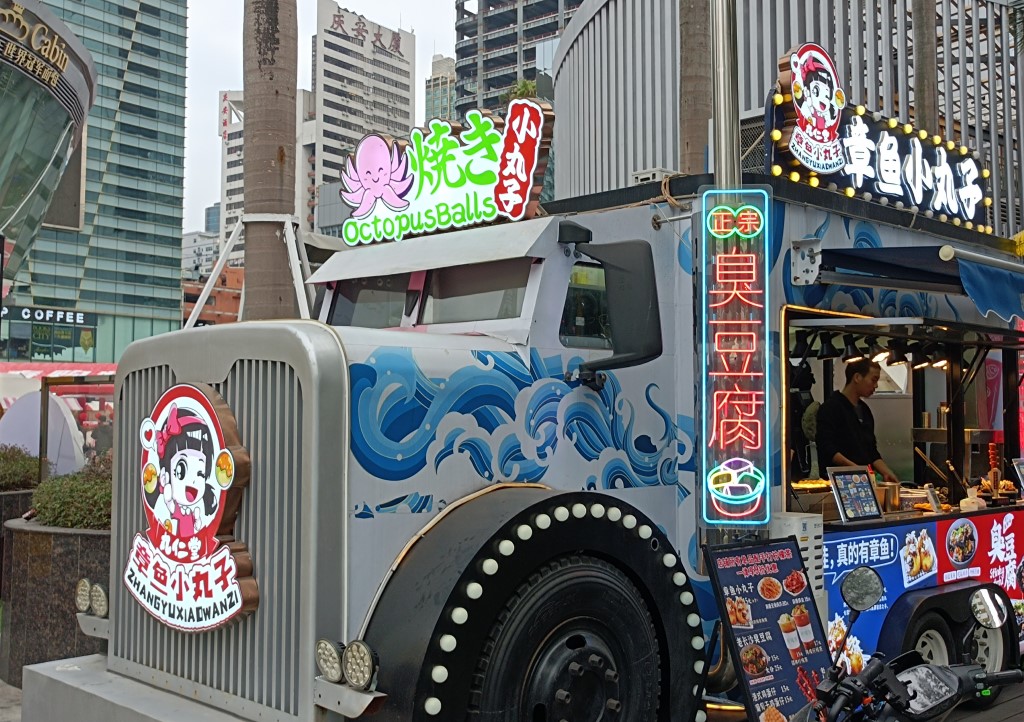
table of contents
- 1 Apps I use at work
- 2 Apps used in daily life
- 3 Apps I use for work and life
- 3.1 WeChat (weixin)
- 3.2 Alipay (Alipay / zhifubao)
- 3.3 Alipay HK
- 3.4 Baidu
- 3.5 Weibo
- 3.6 Gaode ditu map (gaode ditu)
- 3.7 ICBC (China Industrial and Commercial Bank / zhongguo gongshang yinhang)
- 3.8 Zhongguo tielu 12306, China
- 3.9 zhixing huoche piao
- 3.10 Personal income tax (geren suodeshui)
- 3.11 China Unicom (China Unicom / zhongguo liantong)
- 4 summary
I came to China (Shenzhen) to work and live, and unlike the apps offered in Japan and other countries, there are many apps that are unique to China. I would not be able to work or live without these Chinese apps
I own two smartphones: the Google Pixel 8 for Japan and the HUAWEI Enjoy 60 Pro for China
In this blog, we will introduce some of the apps that will be useful for those stationed in China
Apps I use at work
First, I'd like to introduce some Chinese apps that I use for work
DingTalk (钉钉 / dingding)

In China, communication for both work and personal life is often done through WeChat
However, if you have a business partner who wants to keep their work and personal communication methods separate, you can install the groupware DingTalk on your PC or smartphone to communicate with them
Ali Mail
 Beyond's headquarters in Japan uses an email address with a Japanese domain (Google Workspace), but its local subsidiary in China uses an email address with a Chinese domain (Ali Mail)
Beyond's headquarters in Japan uses an email address with a Japanese domain (Google Workspace), but its local subsidiary in China uses an email address with a Chinese domain (Ali Mail)
The use of Ali Mail is to communicate by email using different domains (email addresses) depending on whether the business partner is a Japanese company or a Chinese company
Additionally, Ali Mail has a standard security feature that automatically sorts spam-like emails into the junk folder
By the way, Ali Mail can be linked with DingTalk, which we mentioned earlier. For example, the contents of emails received in Ali Mail can also be reflected in DingTalk's groupware (chat)
*Please note that both Ali Mail and DingTalk are services of the Alibaba Group
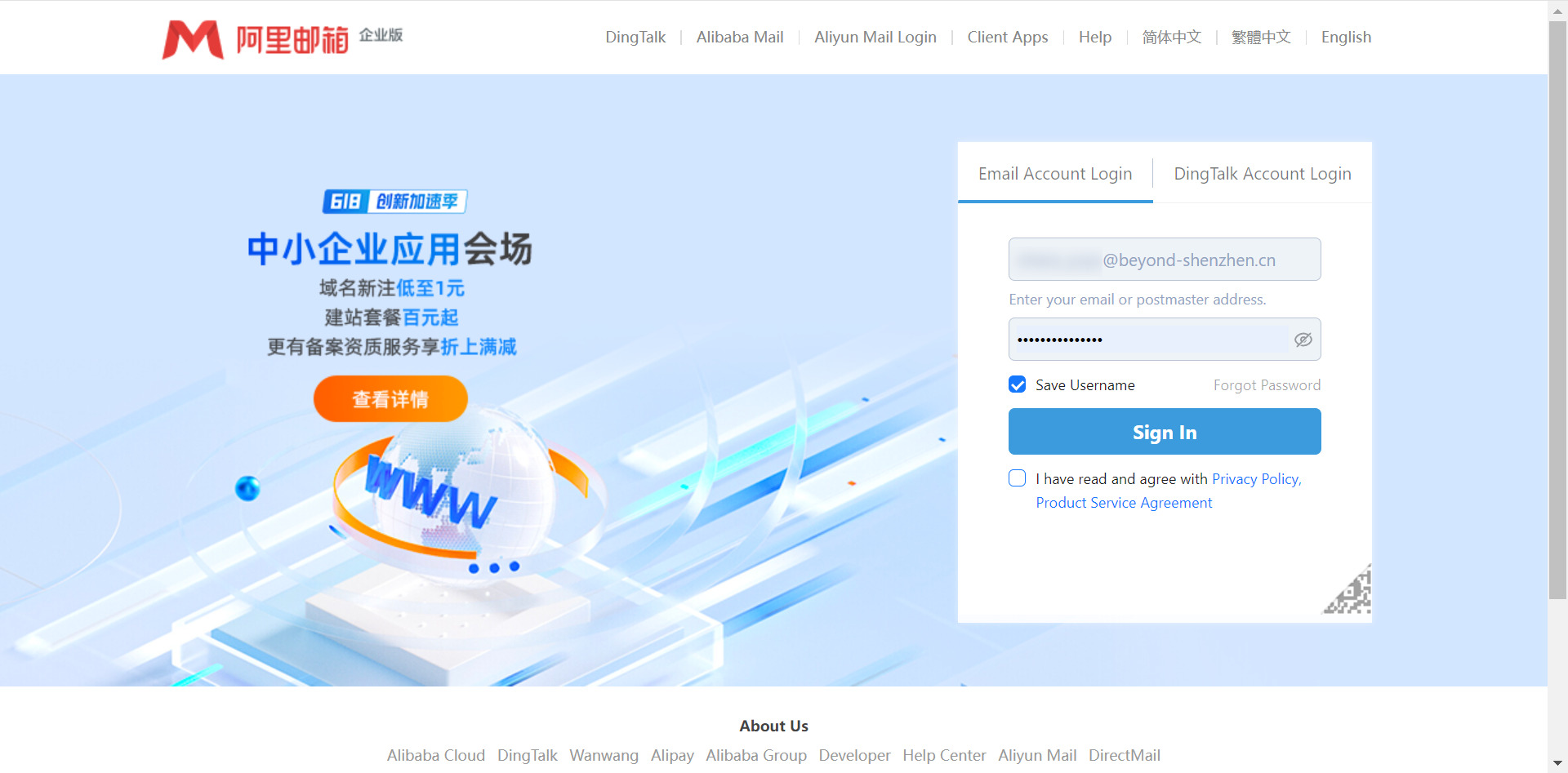
Zoom

The well-known Zoom app can be used not only in Japan but also in China. I feel that it offers the most stable communication quality when holding online meetings with multiple people between Chinese and overseas companies
SF Express (Shunfeng sudi)
 I always use this delivery company when I send documents or packages. I call a delivery person through the app and they come to pick up the package on the same day
I always use this delivery company when I send documents or packages. I call a delivery person through the app and they come to pick up the package on the same day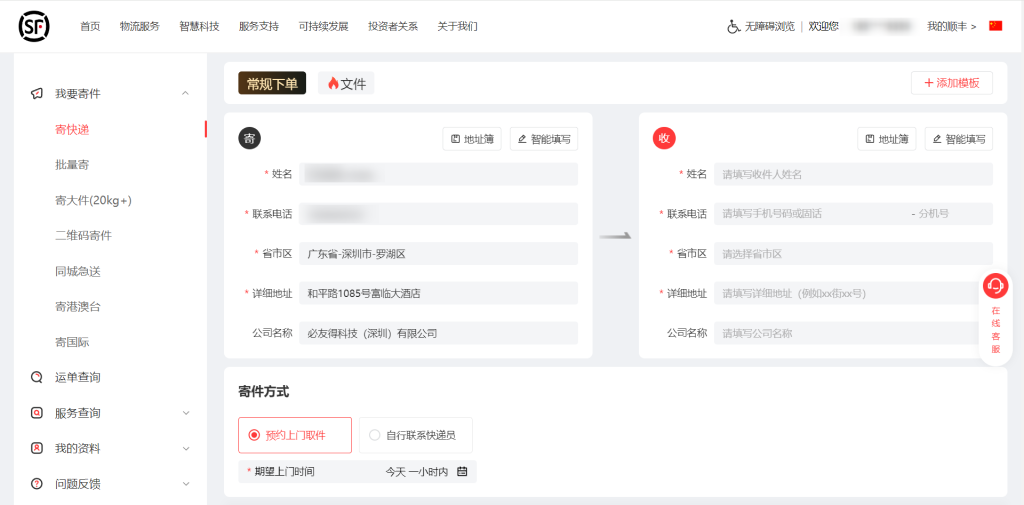
National Tax Bureau Shenzhen City Electronic Tax Bureau (shenzhen shuiwu)
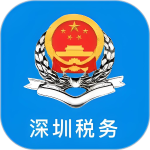
When your company bills and records accounts receivable from a business partner for services or products that incur tax as part of its business, you must of course issue an invoice
In China, there is a system called "fapiao" which is an invoice with the tax rate and amount applied for reporting to the government. Companies can use the digitized system and app of the State Administration of Taxation to electronically issue invoices (fapiao) themselves and then send these invoices (fapiao) to their business partners
* Without an invoice, your business partner will not remit the sales amount for your services or products to you. (In other words, your bank will not accept your remittance or deposit.)
Apps used in daily life
Next, I'd like to introduce some Chinese apps that I use in my daily life and privately
bilibili (哔哩哔哩)

This video app is like a cross between YouTube and Nico Nico Douga. It has a variety of videos uploaded, including anime, dramas, movies, and live broadcasts. Like Nico Nico Douga, it has a barrage feature, but you can hide it if you don't want it
Of course, the videos uploaded are different from those on YouTube, so it's interesting to watch and compare the videos on YouTube and bilibili, for example, "If there's no video I'm interested in on YouTube, I'll go and check out bilibili."
meituan
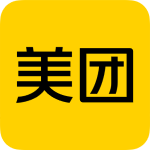
It's a taxi booking and delivery app similar to Uber. Many people in China order food delivery
At Meituan, you can purchase daily necessities, home appliances, pet supplies, and even make reservations for karaoke and dentist appointments. They also sell large items, so you can purchase them on the same day and have them delivered the same day. (I ordered a desk at 11pm, and it arrived at my house at 2am.)
*Recently, low-flying drones have also begun to be used for home delivery
Hellobike (Haluo Chuxing)
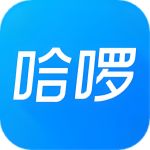
This is a bicycle rental service that is common on the streets of the city
I often use these rental bicycles when I want to go to a supermarket a little far from my house or when I need to take the train to a place far from the station. Because the rental bicycles can be dropped off, I can easily go to various places by bicycle even when I'm traveling far away
When you ride a bike, you scan the QR code on the bike with your smartphone, and when you're ready to return it, just click the return button in the app
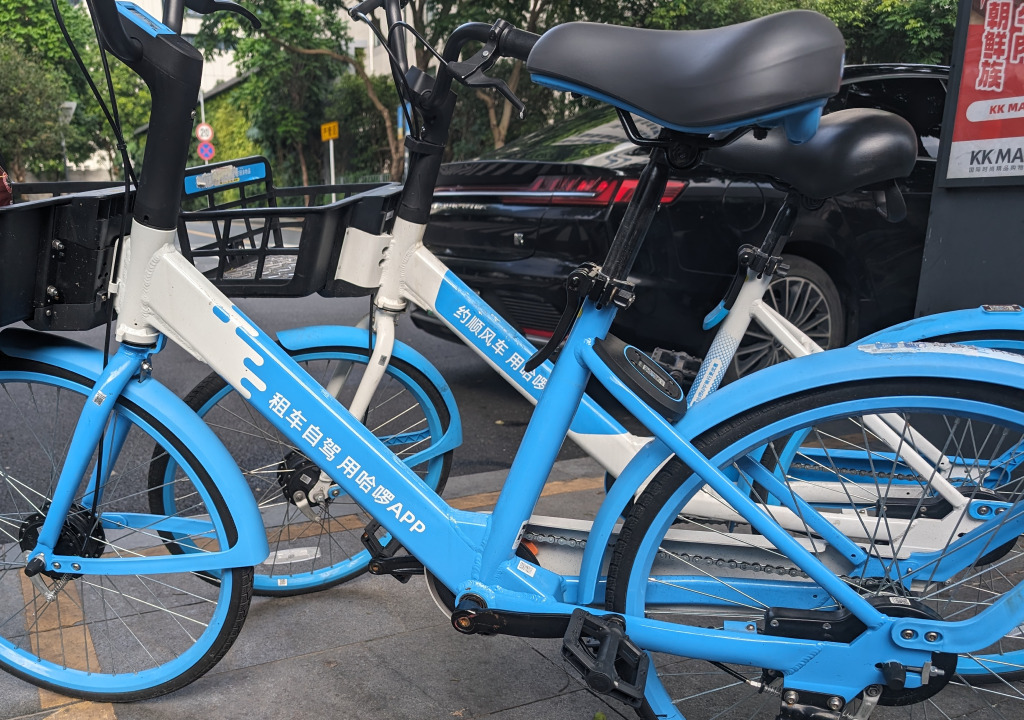
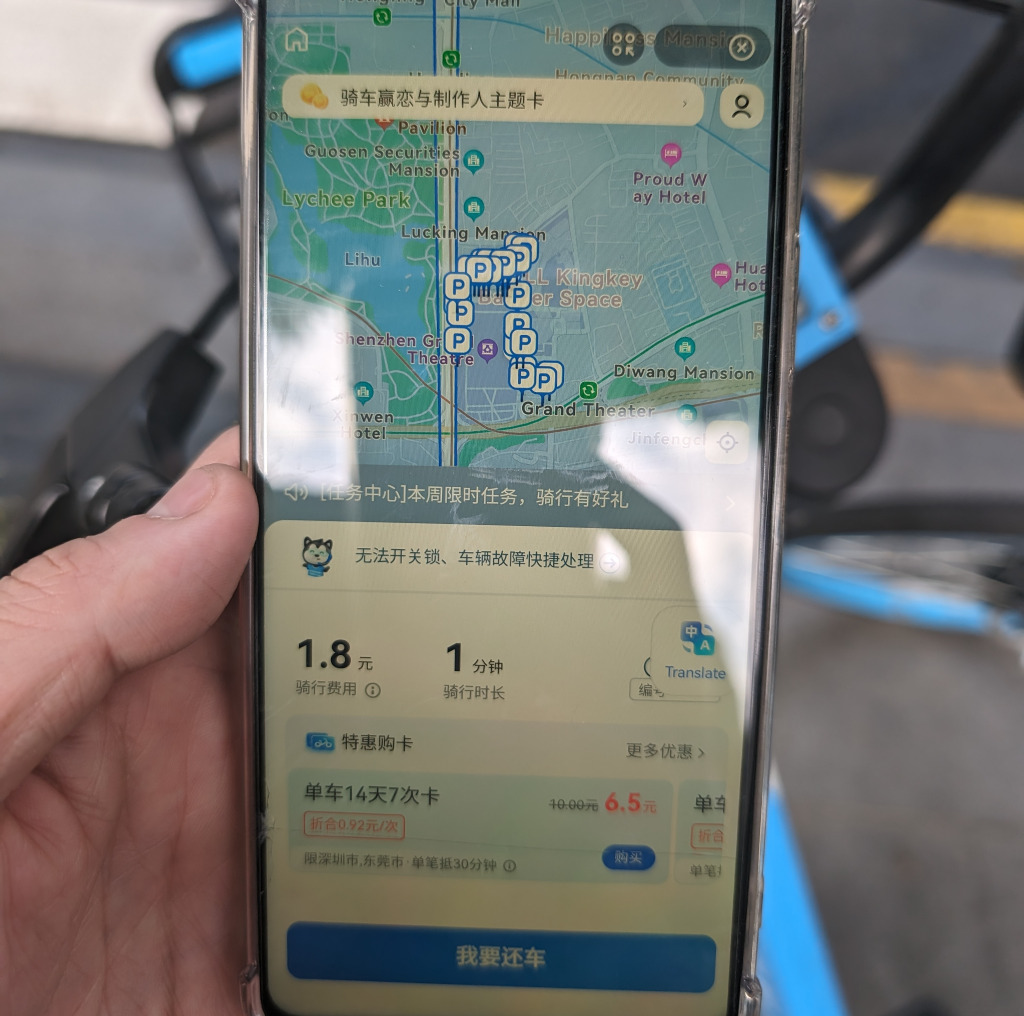
JD.com (Jingdong)

I often buy clothes, home appliances, bedding, etc. from JD.com's online store. If I have any questions before or after purchasing a product, I can contact the store via chat
Personally, I think the quality of the products sold there is higher than on Taobao or Pinduoduo
By the way, Jingdong also has a large physical store called Jingdong Dianqi, which specializes in electrical appliances

RED (小红书 / xiaohongshu)

In Japan, it's like Instagram, a social networking site. I don't use it much, but I do look at the photos and videos people post
Hive Box(丰巢 / fengchao)
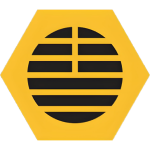
It's a service similar to Amazon's delivery lockers. You can see these delivery lockers in various places. Of course, I have one on the first floor of my apartment building
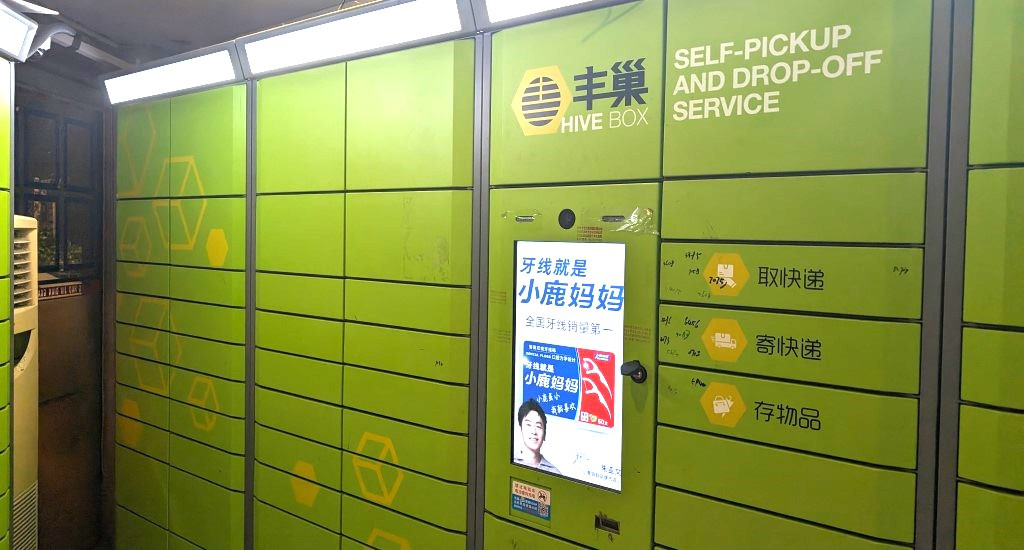
To receive your package, you must authenticate the SMS number sent to your smartphone by the delivery company by touching the LCD panel in the center of the image
*By the way, it seems that the parent company is SF Express (顺Feng Express), which we introduced earlier
Apps I use for work and life
These are Chinese apps I use for both work and life
WeChat (weixin)

WeChat is an essential app for work and life in China, and you can't do anything without it. For foreigners, it takes time to get used to using the app and its etiquette at first, but once you get the hang of it, it's very easy to use
WeChat can be used not only for messaging, but also for payments with WeChat Pay (weixin zhifu) and for using the mini-program 蹘车码 (chengchema) to travel on public transport such as subways and buses
As a side note, it is fine to link credit cards such as VISA and Mastercard to WeChat Pay, but due to the security measures of the credit card issuer, you may encounter a "payment error when staying in China." (This also applies to Alipay, which will be introduced later.)
Therefore, if you are linking a credit card to WeChat Pay and intend to use it overseas, be sure to contact your credit card issuer in advance while you are in Japan and apply to have the security restrictions on credit card payments lifted
Alipay (Alipay / zhifubao)
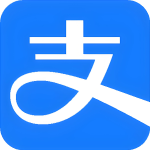
Alipay is a payment app that has the same payment function as WeChat mentioned above. Alipay and WeChat are the two biggest apps in China
Before I was posted to China, I often used Alipay when I visited China for inspections or business trips, but recently I only use WeChat
However, there are some services and stores that only accept Alipay, so it is a good idea to have both Alipay and WeChat installed on your smartphone
Alipay HK

This is the Hong Kong version of Alipay. Perhaps only those who work or live in Shenzhen, Guangdong Province, or the Hong Kong area have much opportunity to use it
When I went to Hong Kong, I used this app to ride the Hong Kong MTR and buses, and to shop at convenience stores. Also, to register and authenticate the Alipay HK app, I needed a Hong Kong phone number (SMS), so I purchased an eSIM from CUniq
*Although I have never used it, it seems that the same thing can be done with the original Alipay or Octopus card
Baidu

When researching within China, I use Baidu because Google search doesn't yield any results. Baidu has an overwhelming market share in China, and of course, when aiming to attract inbound tourists via the Internet, SEO optimization and internet advertising on Baidu are also important
Also, I recently noticed that Baidu's search engine has an AI tool called "Baidu AI Image Assistant" that automatically corrects blurry images when you upload them
I think this is more advanced than Google's features (and it's free, of course)

We use Weibo to distribute information about our services, news, and events for our company's marketing purposes. Recently, there has been a lot of social media marketing using the RED (Little Red Book) app, but Weibo still has a strong ability to spread information
Gaode ditu map (gaode ditu)

Baidu MAP is also well-known, but I often use this "Gaode Map."
Also, if you want to display your company's location information in an iframe on your homepage, you must first apply to Takatoku Maps for API access and write the code in JavaScript. (Unlike the Google Maps iframe code, you cannot just copy and paste the map code.)
*The location information for our company Beyond's China office also uses this Gaode Map API.

ICBC (China Industrial and Commercial Bank / zhongguo gongshang yinhang)

ICBC is the world's largest financial institution by market capitalization
I have both personal and business banking accounts with ICBC (Industrial and Commercial Bank of China), so this banking app is also very important to me
*Beyond's local Chinese subsidiary is a "wholly owned corporation (100% Japanese capital)", so the process of opening a bank account was very difficult due to the need to check the company's registered address, capital, telephone number, and passport
Zhongguo tielu 12306, China
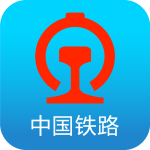
China's version of the Shinkansen, the "Gaotie," does not have a "non-reserved seat" category like the Japanese Shinkansen, so you must purchase a Gaotie ticket in advance to board the train
The China Railway 12306 app allows you to book not only high-speed rail tickets, but also plane tickets, hotel accommodations, and more, but it seems to be mainly used to book high-speed rail tickets
zhixing huoche piao

This is a ticket booking app similar to the aforementioned China Railway 12306 app. If you are traveling by plane within China or from China to an international destination, this app may be easier to use
Personal income tax (geren suodeshui)
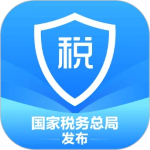
In Japan, it's like a tax return app. You use this app to file your tax returns and more
China Unicom (China Unicom / zhongguo liantong)
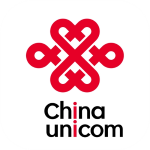
The mobile phone carrier I use in China is "China Unicom." The service fee is a deposit system, so it is cheaper than the service fee of the carrier I use in Japan. (Mobile phone fees in Japan are expensive.)
In the past, it was said that "Because the Chinese mainland is so large, there were times when you could not connect depending on the area under the jurisdiction of each telecommunications carrier," but now there is not much difference in communication quality between telecommunications carriers
Beyond offers the Chinese SIM service " Choco SIM " through a communications technology partnership with China Unicom. Choco SIM is a convenient SIM service that allows you to sign up for a Chinese phone number while in Japan, making calls and using the internet in China, and even allowing you to use apps like Google and LINE while you're in China.
In addition, most Chinese apps require authentication using a Chinese phone number, so if you need a Chinese phone number (or Chinese apps) while in Japan, using Choco SIM is a good option even if you are in Japan
summary
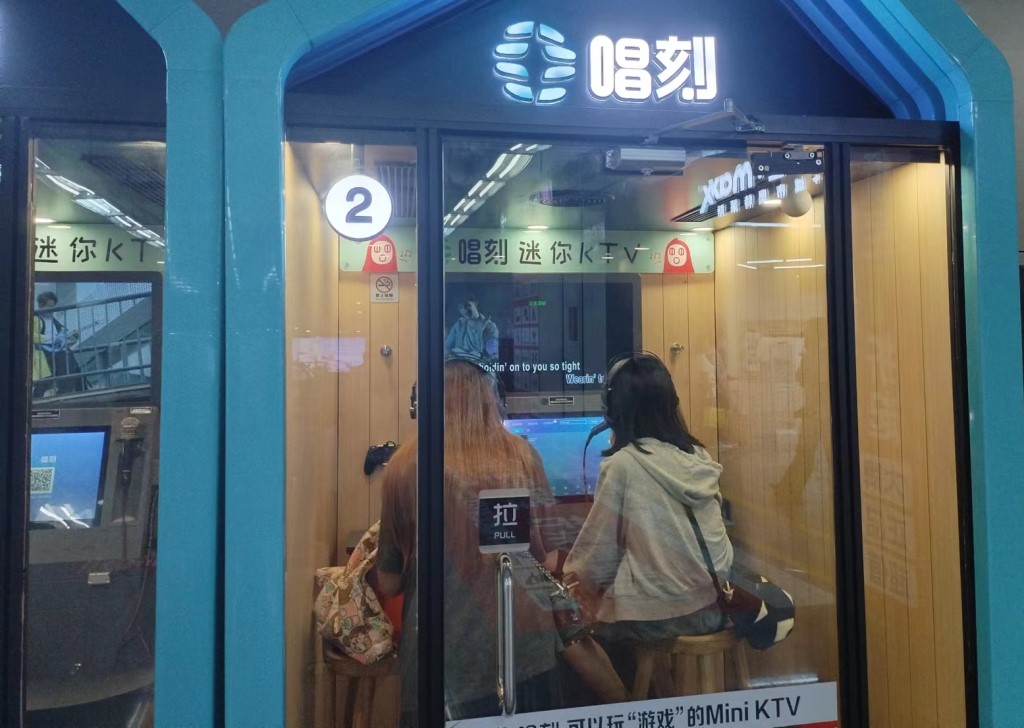
*A photo of people using the mini karaoke machine "Changke" at Shenzhen Futian Station
Above, we have introduced some Chinese apps that will be useful for those working in China. Apps have developed in China's unique internet environment, so it's interesting to try them out and compare them with other Japanese and overseas apps
Additionally, if I find any other Chinese apps that seem useful or interesting, I will introduce them on my blog

 8
8